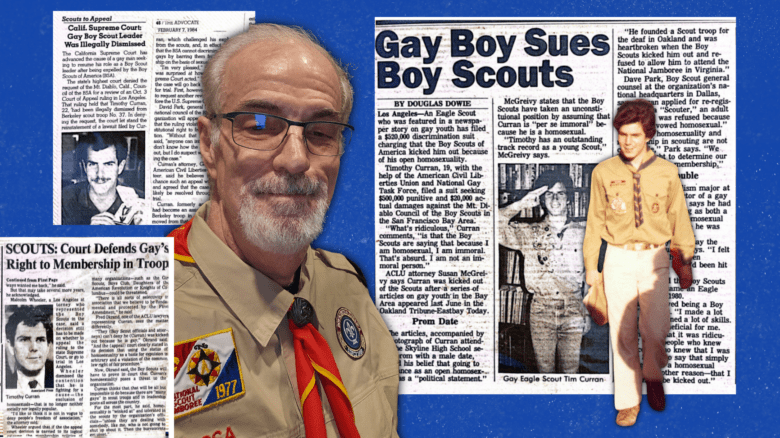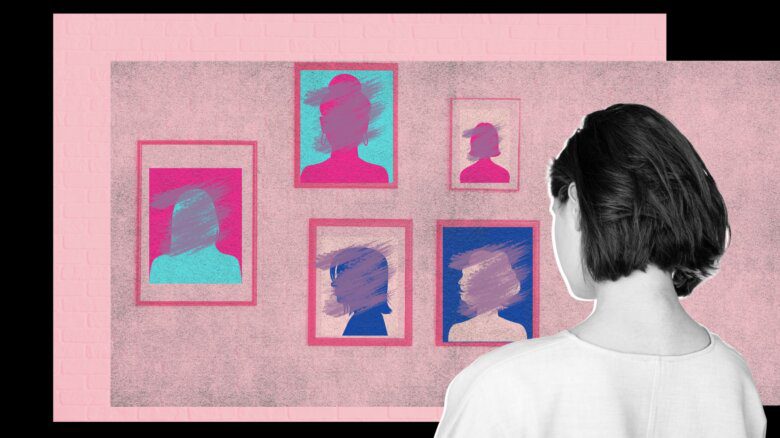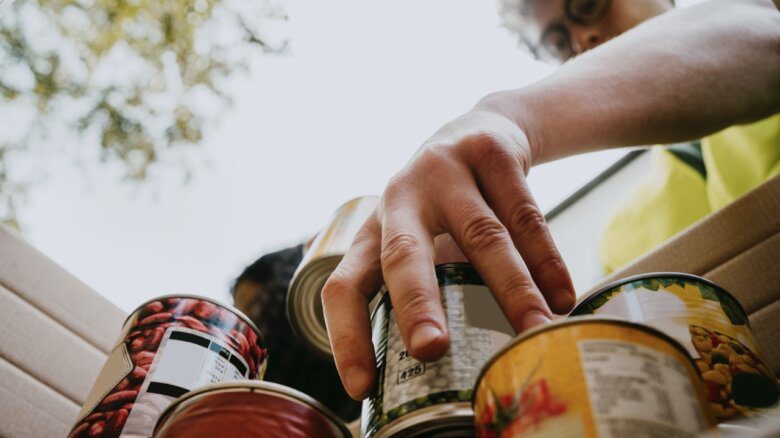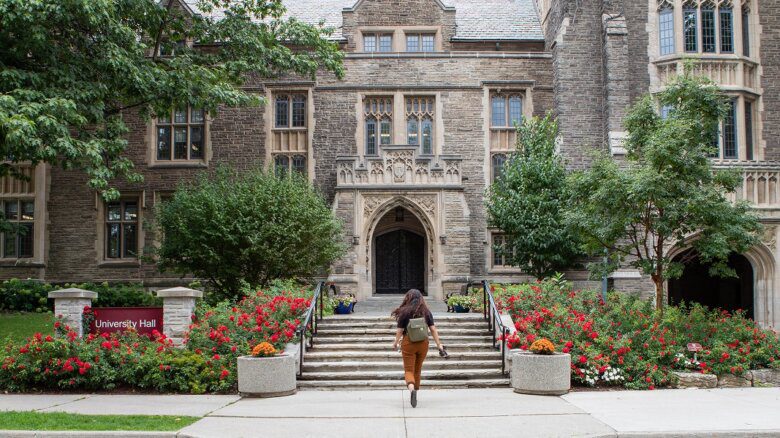Lenny Emson—executive director of Transgender Europe, former executive director of Kyiv Pride and founder of KyivPride Canada—was in Ottawa for a discussion on the state of trans rights globally as part of Capital Pride activities last week, and I took the opportunity to sit down with him about the state of LGBTQ+ rights in Ukraine, and what more the Canadian government can and should be doing about it.
“For LGBTQ+ Ukrainians, the situation is very complicated,” Emson says. “As the most marginalized community, they are suffering the most, not just necessarily from the consequences of the war, but because of the hate crimes and discrimination in all consequences of the situation when some people feel that this is the right moment that they can show LGBTQ+ populations their place.”
Emson talks about a recent incident in Lviv where a trans woman serving in the army was beaten badly—she was able to film the attack, and it’s clear that her gender identity was the reason her attackers went for her.
Emson notes that Transgender Europe is usually an organization that helps build capacity with its member organizations, but when it comes to Ukraine, they needed to change their approach in order to serve the community directly, and in particular have been helping trans Ukrainians who are fleeing the country and ensuring they have access to healthcare and services all over Europe. They have also started a program to monitor violence against trans people in Ukraine and trans refugees who have fled the country.
“I would call on people who are in Canada that if you know Ukrainian trans refugees and cases of violence or discrimination toward them, then to report it,” he says. “Help us to collect this data and evidence of anti-trans violence directed specifically to Ukrainians inside the country and outside the country.”
Emson says that they need statistics and research to show the extent of the issues they face and what their needs are. That lack of data extends to other queer Ukrainians going abroad, which makes it hard to understand their needs as they settle elsewhere, including Canada.
“We have access to the community who are relying on LGBTQ+ organizations asking for help, but there are many who have come here [paying their own way], relying on themselves and not asking for help,” Emson says. “They are outside of the view of LGBTQ+ organizations. I was speaking to Capital Rainbow Refuge, and we are in contact with Rainbow Railroad, and I don’t see the majority of LGBTQ+ Ukrainians fleeing the war knocking on the door of these organizations.”
Emson says that one thing the Canadian government can do is to reach out to queer and trans Ukrainians who need support and who can express their needs and talk about their situation.
“How are they?” Emson suggests asking. “How are they settling? What is their future? What does that look like? Are they feeling okay? Do they [experience] transphobia or homophobia? Do they experience some kind of discrimination given that they are very new here? Canada is a very welcoming country, and Canada did a lot to improve its LGBTQ2S+ rights, but sometimes people who are traumatized by war and their previous transphobic or homophobic experiences can find themselves in different situations related to discrimination.”
Emson says that Ukraine has actually carried on with the program that allows trans people to change gender markers on their passports in spite of the war, and that many trans women have continued to be able to access this because the country has managed to keep its bureaucracy functioning through the war.
“Kyiv Pride’s shelter was hosting trans people who were coming to Kyiv to go through the procedure of legal marker change in their passport. I know other organizations that would provide consultations, such as where to go, how to apply for changing the legal gender marker, and so on,” Emson says.
What more can Canada do? In light of a recent case where the Canadian government interceded with the Ukrainian government directly over a journalist who had been denied credentials, is there more they can do for queer and trans people in Ukraine?
Emson says that the Canadian government is helping, not just with the travel authorization program that provided safe haven for many thousands of Ukrainians fleeing the war, but when it comes specifically to queer and trans populations, a systemic approach is needed.
“For example, Transgender Europe is a regional organization that works with trans organizations on the ground,” Emson says. “We have the possibility to work with a number of trans activists and to help different parts of the community, because every organization is connected to a community and we cover the needs of different trans population members, and other regional organizations like ILGA-Europe work with LGBTQ+ organizations, and they have the possibility to cover the needs of LGB people.”
Emson says that the Canadian government, using a systemic approach, could reach out to local organizations to cover their needs.
“That would be an approach we would welcome, and would probably help with humanitarian support that is needed now, and will be needed a few years after the war,” Emson says. “It would make this humanitarian support well organized. We would like to see the Canadian government support this systemic approach.”
Emson says this would start with a needs assessment, reaching out to more local organizations, and providing humanitarian support, before they get to capacity building moving forward. That could mean partnering with groups like Transgender Europe and ILGA-Europe, who have those contacts with groups on the ground. This might also require building the capacity of the Canadian embassy in Kyiv to do this kind of work.
Emson notes that same-sex civil partnerships within Ukraine are moving forward even during the war, but worries there will be backlash to it. He does also note that president Volodymyr Zelenskyy has moved ahead with this legislation in response to citizen petitions, even though he is risking harm to his political career to do so.
Looking toward a postwar future, Emson worries that there will still be challenges in changing the attitudes in Ukraine around queer and trans people, in part because of Russian propaganda still operating while the country tries to undergo a process of de-Russification.
“People are tired of colonialism and oppression and are pushing back, and we don’t want these Russian values,” Emson says. “But we have Russian propaganda working against that. They have money, they have tons of bots on social media. We all tend to think that the war will exhaust Russia and they won’t be able to put so much money into propaganda—it’s not true.”
Emson says that even now, some of the propaganda doesn’t make particular sense, such as saying “LGBT=Putin,” but it evokes feelings in the population.
“Don’t ask me where the logic is, but they are pushing this agenda,” Emson says. “The average citizen won’t go deeper into it and try to look at what Putin did to LGBTQ+ community in Russia.”
Emson adds that there will also be a lot of post-traumatic stress in the country postwar, especially for those who were within occupied regions.
“For the trans community, this post-traumatic stress is doubled, because right now, organizations are collecting the data about what happened in the occupied territories specifically toward LGBTQ+ people, and how Russians tortured them, and how Russians treated them,” Emson says. “When the results are out, I think it will be just horrifying. This trauma will reflect on the situation for trans people specifically.”
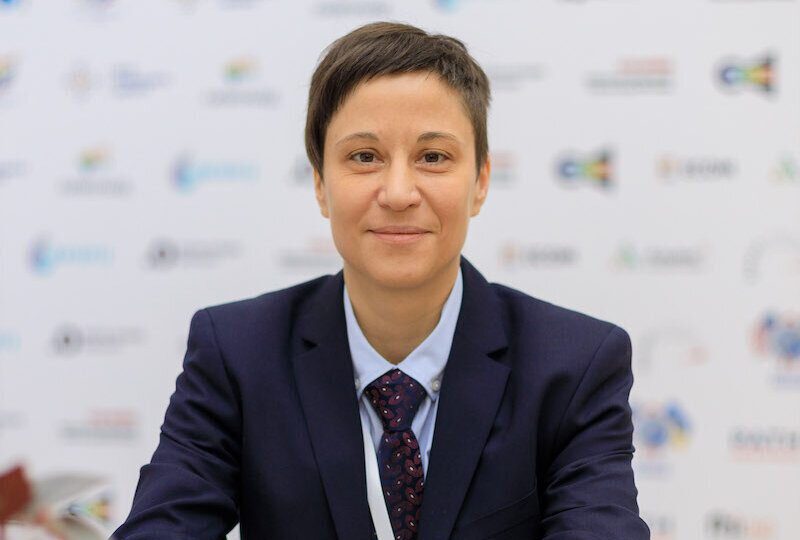

 Why you can trust Xtra
Why you can trust Xtra